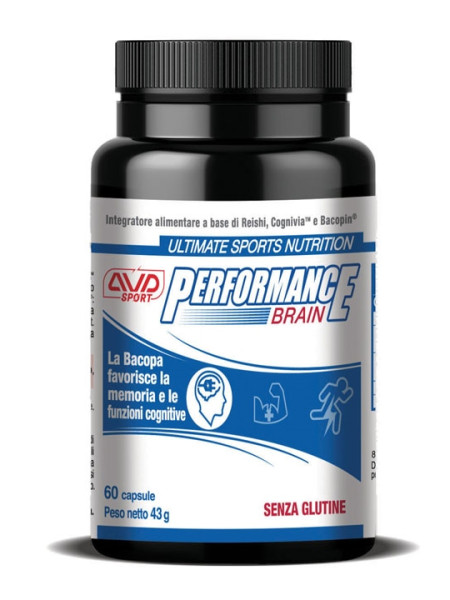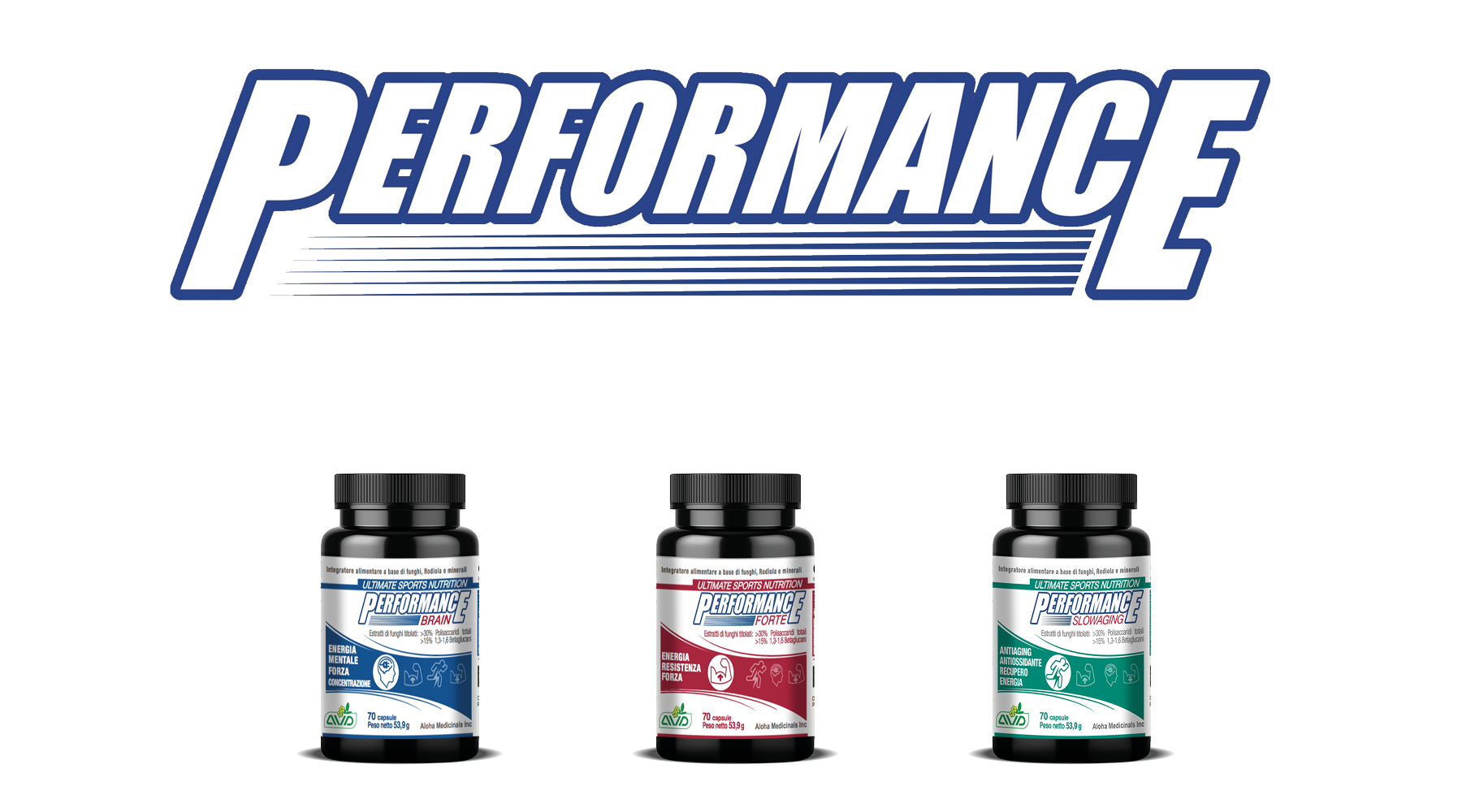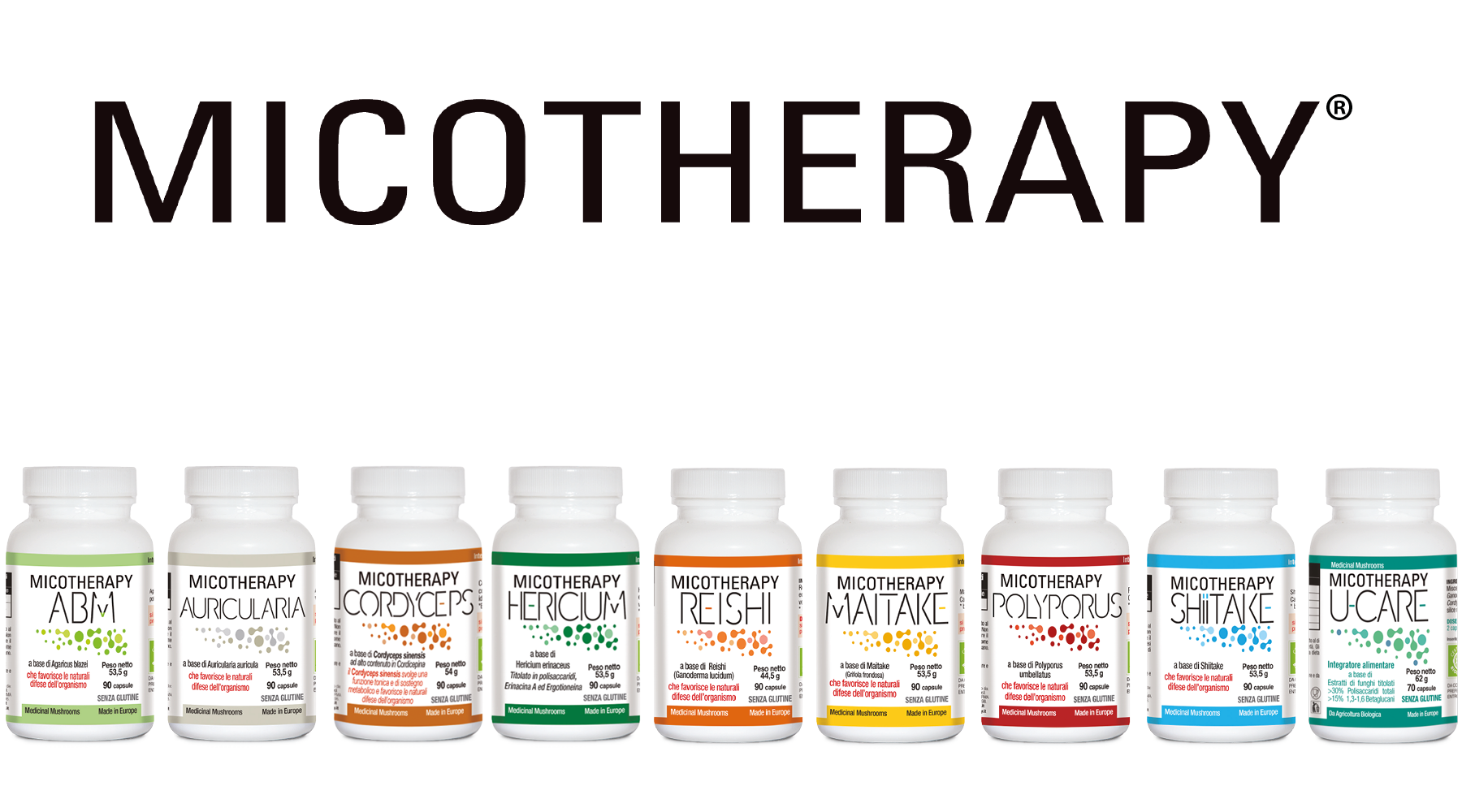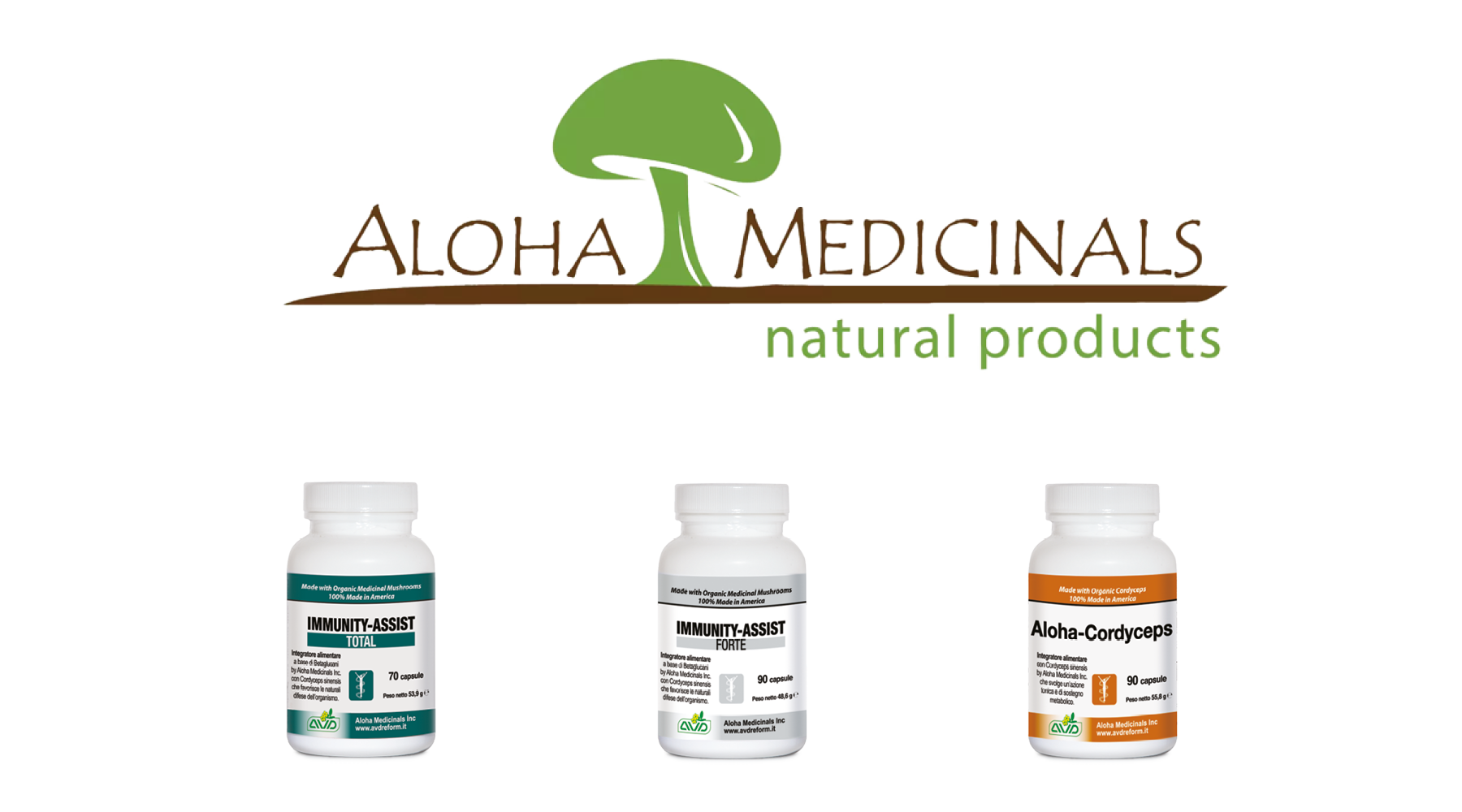
Performance Brain
Performance brain è un integratore che contiene una sinergia “nootropa” a base di Ganoderma lucidum da agricoltura biologica, Salvia officinalis e lavandulifolia, Bacopa, L-Teanina e Caffeina, studiata appositamente per potenziare le funzioni cognitive e la performance mentale.
Formato
60 capsule
Mdo d'uso
Si consiglia di assumere 1 capsula al giorno come mantenimento, quindi aumentare la dose di 1 capsula ogni giorno già due giorni prima della gara e 4 capsule il giorno della performance
Proprietà
Performance Brain è utile per tutti coloro che sottoposti a stress fisico e psichico, necessitino di un potenziamento delle capacità di attenzione, concentrazione e focalizzazione per il raggiungimento della prestazione, utile sia per sportivi d’élite che master, ma anche per lo studente con calo di attenzione o il manager che desideri il mantenimento di adeguati di livelli di performance mentale sul lavoro. Performance Brain favorisce il miglioramento della capacità di apprendimento, il potenziamento delle funzioni cognitive in condizioni di stress mediante protezione del sistema nervoso centrale da sostanze neurotossiche, ottimizzazione e potenziamento dei processi neuronali senza aumentare la produzione di catecolamine come Adrenalina e Noradrenalina, ma favorendo l’azione di GABA e Dopamina
Effetti principali
Favorisce il mantenimento di adeguati livelli di attenzione e di concentrazione Sinergia nootropa utile per sostenere le performance mentali Utile in caso di brain fog o situazioni di annebbiamento mentale da eccessivo stress
Informazioni nutrizionali
| Componenti |
Per dosaggio giornaliero |
|---|---|
| Ganoderma lucidum (Reishi) | 565 mg |
| Cognivia® (Salvia officinalis e Salvia lavandulifolia) | 500 mg |
| Bacopin® (Bacopa monnieri) tit. 20% | 372 mg |
| Apporto bacosidi | 75 mg |
| Caffeina | 75 mg |
Reperibilità prodotto
Codice parafarmaco: 8059173430123
Inserito nel registro degli integratori n°:
Note:
Prodotto certificato Play Sure-Doping Free - Senza Glutine
Nathan, PJ., et al. “The neuropharmacology of L-theanine (N-ethyl-L-glutamine) a possible neuroprotective and cognitive enhancing agent.” Journal of Herbal Pharmacotherapy6.2 (2006): 21-30.
Juneja, LR, et al. “L-theanine—a unique amino acid of green tea and its relaxation effect in humans.” Trends in Food Science & Technology 10.6-7 (1999): 199-204.
Yoto, A, et al. “Effects of L-theanine or caffeine intake on changes in blood pressure under physical and psychological stresses.” Journal of physiological anthropology 31.1 (2012): 28.
Kelly, SP., et al. “L-theanine and caffeine in combination affect human cognition as evidenced by oscillatory alpha-band activity and attention task performance.” The Journal of nutrition138.8 (2008): 1572S-1577S.
Park, Sang-Ki, et al. “A combination of green tea extract and l-theanine improves memory and attention in subjects with mild cognitive impairment: a double-blind placebo-controlled study.” Journal of medicinal food 14.4 (2011): 334-343.
Potgieter, S et al. “Caffeine improves triathlon performance: a field study in males and females.” International journal of sport nutrition and exercise metabolism 28.3 (2018): 228-237.
Schneiker, KT, et al. “Effects of caffeine on prolonged intermittent-sprint ability in team-sport athletes.” Medicine and science in sports and exercise 38.3 (2006): 578-585.
Stuart, GR., et al. “Multiple effects of caffeine on simulated high-intensity team-sport performance.” Medicine and science in sports and exercise 37.11 (2005): 1998.
Evans, Mark, et al. “Acute Ingestion of Caffeinated Chewing Gum Improves Repeated Sprint Performance of Team Sport Athletes With Low Habitual Caffeine Consumption.” International journal of sport nutrition and exercise metabolism 28.3 (2018): 221-227.
López-González, LM., et al. “Acute caffeine supplementation in combat sports: a systematic review.” Journal of the international society of sports nutrition 15.1 (2018): 60.
Brooks, JH., et al. “Caffeine supplementation as an ergogenic aid for muscular strength and endurance: a recommendation for coaches and athletes.” (2016).
Nehlig, Astrid. “Is caffeine a cognitive enhancer?.” Journal of Alzheimer’s Disease 20.s1 (2010): S85-S94.
Panza, F, et al. “Coffee, tea, and caffeine consumption and prevention of late-life cognitive decline and dementia: a systematic review.” The journal of nutrition, health & aging 19.3 (2015): 313-328.
Tildesley N.T.J. et al. Positive modulation of mood and cognitive performance following administration of acute doses of Salvia lavandulaefolia essential oil to healthy young volunteers. Physiology & Behavior 83 (2005) 699-709
Kennedy D.O. et al. Effects of Cholinesterase Inhibiting Sage (Salvia officinalis) on Mood, Anxiety, and Performance on a psychological Stressor Battery. Neuropsychopharmacology (2006) 31, 845-852
Scholey A.B. et al. An extract of Salvia (Sage) with anticholinesterase properties improves memory and attention in healthy older volunteers. Psychopharmacology (2008) 198:127-139
Tildesley N.T.J. et al. Salvia lavandulaefolia (Spanish Sage) enhances memory in healthy young volunteers. Pharmacology, Biochemistry and Behavior (2003) 75: 669-674.
Kennedy D.O. et al. Monoterpenoid extract of Sage (Salvia lavandulaefolia) with cholinesterase inhibiting properties improves cognitive performance and mood in healthy adults. Journal of Psychopharmacology. (2011) 25(08): 1088-1100.
Pase, MP., et al. “The cognitive-enhancing effects of Bacopa monnieri: a systematic review of randomized, controlled human clinical trials.” The Journal of Alternative and Complementary Medicine 18.7 (2012): 647-652.
Roodenrys, S, et al. “Chronic effects of Brahmi (Bacopa monnieri) on human memory.” Neuropsychopharmacology 27.2 (2002): 279.
Calabrese, C, et al. “Effects of a standardized Bacopa monnieri extract on cognitive performance, anxiety, and depression in the elderly: a randomized, double-blind, placebo-controlled trial.” The journal of alternative and complementary medicine 14.6 (2008): 707-713.
Chaudhari, KS., et al. “Neurocognitive effect of nootropic drug Brahmi (Bacopa monnieri) in Alzheimer’s disease.” Annals of neurosciences 24.2 (2017): 111-122.
Simpson, T et al. “Bacopa monnieri as an antioxidant therapy to reduce oxidative stress in the aging brain.” Evidence-Based Complementary and Alternative Medicine 2015 (2015).
Saraf MK, et al. Bacopa monniera attenuates scopolamine- induced impairment of spatial memory in mice. Evid Based Complement Alternat Med 2011;
Nemetchek, MD., et al. “The Ayurvedic plant Bacopa monnieri inhibits inflammatory pathways in the brain.” Journal of ethnopharmacology 197 (2017): 92-100.
Shinomol, GK et al. “Bacopa monnieri extract offsets rotenone-induced cytotoxicity in dopaminergic cells and oxidative impairments in mice brain.” Cellular and molecular neurobiology 32.3 (2012): 455-465.
Swathi, G, et al. “Alterations of cholinergic neurotransmission in rotenone induced Parkinson’s disease: protective role of Bacopa monnieri.” Int J Pharm Biol Sci 3 (2013): 286-292.
Hosamani, R. “Prophylactic treatment with Bacopa monnieri leaf powder mitigates paraquat-induced oxidative perturbations and lethality in Drosophila melanogaster.” (2010).
Krishna, G., et al. “Bacopa monnieri Supplements Offset Paraquat-Induced Behavioral Phenotype and Brain Oxidative Pathways In Mice.” Central nervous system agents in medicinal chemistry (2019).
Chen, Zhidan, et al. “Pharmaceutical composition and drug effect of synthetic Bacopa monnieri L. health promoting agent from the perspective of resistance fatigue.” Pakistan journal of pharmaceutical sciences 30 (2017).
Kennedy, David O. “Phytochemicals for improving aspects of cognitive function and psychological state potentially relevant to sports performance.” Sports Medicine (2018): 1-20.
Peth-Nui T, et al. Effects of 12-week Bacopa monnieri consumption on attention, cognitive processing, working memory, and functions of both cholinergic and monoaminergic systems in healthy elderly volunteers. Evid Based Complement Alternat Med. 2012;2012:606424.
Tang, W, et al. “A randomized, double-blind and placebo-controlled study of a Ganoderma lucidum polysaccharide extract in neurasthenia.” Journal of medicinal food 8.1 (2005): 53-58.
Zhang, XQ, et al. “Triterpenoids with neurotrophic activity from Ganoderma lucidum.” Natural product research 25.17 (2011): 1607-1613.
Zhang, R, et al. “Ganoderma lucidum protects dopaminergic neuron degeneration through inhibition of microglial activation.” Evidence-Based Complementary and Alternative Medicine 2011 (2011).
Chu, QP, et al. “Extract of Ganoderma lucidum potentiates pentobarbital-induced sleep via a GABAergic mechanism.” Pharmacology Biochemistry and Behavior 86.4 (2007): 693-698.
Cui, XY, et al. “Extract of Ganoderma lucidum prolongs sleep time in rats.” Journal of ethnopharmacology 139.3 (2012): 796-800.
Cai, Q, et al. “Polysaccharides from Ganoderma lucidum attenuate microglia-mediated neuroinflammation and modulate microglial phagocytosis and behavioural response.” Journal of neuroinflammation 14.1 (2017): 63.
Jin, M, et al. “Effects of polysaccharide from mycelia of Ganoderma lucidum on intestinal barrier functions of rats.” International journal of biological macromolecules 94 (2017): 1-9.
Chang, CJ, et al. “Ganoderma lucidum reduces obesity in mice by modulating the composition of the gut microbiota.” Nature communications 6 (2015): 7489.
Xu, S., et al. “Ganoderma lucidum polysaccharides improve insulin sensitivity by regulating inflammatory cytokines and gut microbiota composition in mice.” Journal of functional foods 38 (2017): 545-552.
Kaur, R et al. “Anti-amnesic effects of Ganoderma species: a possible cholinergic and antioxidant mechanism.” Biomedicine & Pharmacotherapy 92 (2017): 1055-1061.
Khatian, N, et al. “Effect of Ganoderma lucidum on memory and learning in mice.” Clinical Phytoscience5.1 (2019): 4.
Zhang, Y, et al. “Influence of Ganoderma lucidum triterpenoids on learning memory function and ACh content in Alzheimer disease model rat.” Chin J Exp Tradit Med Formulae 16.16 (2012): 172-175.
Huang, S, et al. “Polysaccharides from Ganoderma lucidum promote cognitive function and neural progenitor proliferation in mouse model of Alzheimer’s disease.” Stem cell reports 8.1 (2017): 84-94.



